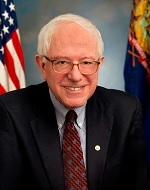 |
| Martin Shkreli |
The spotlight on rising drug prices just keeps getting brighter: Lawmakers filing bills and holding hearings, presidential candidates devising anti-price-hike plans, doctors campaigning on social media, think tanks devising cost-benefit measures. The controversies are doing pharma no favors with consumers, either; most Americans blame drugmakers for their own rising pharmacy bills.
The last thing pharma needs right now is a scandalous price hike to turn up the heat even further.
But that's just what Turing Pharma and its CEO, Martin Shkreli, have on offer. The company bought a standard-of-care drug for toxoplasmosis infections, Daraprim, and promptly jacked up the price by 5000%. The pill, whose users tend to be AIDS sufferers and cancer patients, cost $13.50 per pill just weeks ago. Now, it's $750.
Already, the news has gone viral on Twitter, where debate raged Sunday and Monday. And just before FiercePharma press time, presidential candidate Hillary Clinton tweeted about it as a choice example of pharma price-gouging.
"Price gouging like this in the specialty drug market is outrageous," the tweet stated. "Tomorrow I'll lay out a plan to take it on. -H " Apparently, the "H" signature indicates an actual Hillary sentiment, rather than a statement from the campaign in general, not a good sign.
It's not the first example of a company buying in a drug and hiking the price by a big margin. Valeant Pharmaceuticals ($VRX) is under Congressional investigation for doing the same thing on CV meds Isuprel ($215 per vial to $1,346 per) and Nitropress ($257.90 per vial to $805.61). Horizon Pharma ($HZNP) jacked up its price on the pain pill Vimovo by almost sixfold, soon after buying the drug from AstraZeneca.
And Retrophin ($RTRX), where Shkreli served as CEO till he was tossed out by the board earlier this year, did the same thing to Thiola, used to treat a rare disease that causes kidney stones. The company took its monthly cost from $135 to upward of $2,700.
But those price increases--quite large at 525%, 212%, 597% and yes, even 2000%--are just a fraction of Daraprim's massive increase.
 |
| Sen. Bernie Sanders |
So now, Clinton and her Democratic rival Bernie Sanders--who introduced drug-pricing legislation last week, and has been leading the charge in investigating price hikes in Congress--have a prime example to point to when pushing their own plans. Turing, Martin Shrkeli and Daraprim will serve as a big red flag for the candidates to carry--and that big red flag is likely to spill some blood onto the rest of the drug business.
Pharma can remind the public that the Daraprim example is particularly egregious, not representative of the usual price increases. But drugmakers can't argue that they're blameless. Price hikes are a widespread strategy for growing sales--just take a look at the increases in diabetes drug prices; Eli Lilly's ($LLY) Humulin went up by 325%, for instance, over the past five years. Or any number of brand price increases, topped by Jazz Pharmaceuticals ($JAZZ) and Xyrem (841% over 5 years ending in 2013).
 And using R&D expenses as justification for rising prices just doesn't cut it anymore. Not when hep C activists can point to Gilead Sciences ($GILD), which has already raked in at least enough to pay for developing its hep C drugs Sovaldi and Harvoni, less than two years into their marketing lives.
And using R&D expenses as justification for rising prices just doesn't cut it anymore. Not when hep C activists can point to Gilead Sciences ($GILD), which has already raked in at least enough to pay for developing its hep C drugs Sovaldi and Harvoni, less than two years into their marketing lives.
That's Shkreli's apparent defense for the Daraprim increase; he told The New York Times that Turing needs the dough to invest in developing improved treatments for toxoplasmosis. But doctors told the paper that there's no pressing need for a new med in that field.
One big question is why an older drug like Daraprim has no generic competition. The NYT points out that the brand's distribution is tightly controlled, which could make it tough for generics makers to get the supplies they need in order to develop their own versions. But even without generics, Turing could find that its sales strategy backfires. Buyers might decide to stock cheaper rival drugs instead, despite the fact that Daraprim is currently the generally accepted leader in the field.
- read the FierceBiotech coverage
- check out the NYT story
- see the conversation on Twitter
Special Report: 10 big brands keep pumping out big bucks, with a little help from price hikes